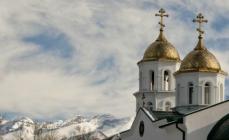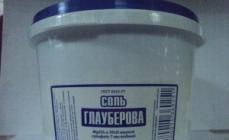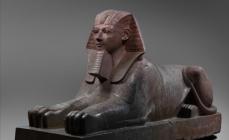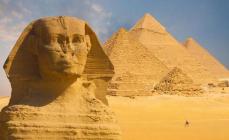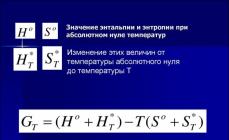The Department of History was founded in 1968. It is one of the structural university divisions as part of the Faculty of Humanitarian Education.
Currently, the department leads to students on disciplines:
Undergraduate levels, specialist
1. "History" ("History of Russia", "Patriotic History")
2. "Business Ethics"
3. "Business Etiquette and Communication Culture"
4. "History of the oil and gas industry"
5. "Culturalology"
6. "Literary and Music Salons" (Optional)
7. "Models of National Innovative Systems"
8. "Basics of business ethics and corporate culture"
10. "Professional Ethics"
Master's level
1. "Vertically integrated oil companies in Russia: history, modernity, traditions" ("Vertically integrated oil companies in Russia")
2. "The history of the development of the oil and gas industry of Russia and foreign countries"
3. "The formation and development of vertically integrated companies in the oil and gas industry"
The collective of the department is actively engaged in educational work with students:
At the Department since 1999 it works;
- the department is held an annual university competition;
- the Department spends 2 times a year;
- under the scientific leadership of teachers of the department, students successfully participate in the conference;
- The team of the department is actively involved in the organization and holding of university, district, city-wide and all-Russian events.
Head of Department -doctor of Historical Sciences, Professor Zezina Maria Rostislavovna
The history of the department takes its beginning in 1946, when the Academy of Public Sciences was created under the CPSU Central Committee, as part of which the Department of the USSR history was opened headed by Academician B.D. Grekov. For over 60 years, during the reorganizations of the Academy, the name of the department has changed several times. But no matter how it was called - the history of the USSR, the history of the Soviet society or the history of the Russian statehood - the department solved an important state challenge, formed a historical worldview of the political elite. Throughout its history, the department retained the basic principles of work: wide connections with leading scientific and educational institutions of the historical profile, fundamental training, active participation in scientific life countries.
For many years she was headed by academics and correspondent members of the Academy of Sciences B.D. Greek, A.M. Pankratova, M.V. Nechkahna, P.A. Zhilin, M.P. Kim, deserved figures of science hp Gaponenko, G.A.Gerasimenko. At the department worked academicians N. M. Druzhinin, I.I. Mintz, I.D. Kovalchenko, Corresponding Member of the Academy of Sciences of the USSR S.V. Bakhrushin, Professor, Doctor of Historical Sciences K.V. Gusev. A great contribution to the development of the department was introduced by Dr. Historical Sciences, Professor Rudolf Germanovich Pihoy, who headed it from 1997 to 2012. Since 2012, the R.G. Pyhoye is headed by the Historic Faculty, which includes the Department.
The department participates in the implementation of undergraduate programs in the direction of "History", magistracy in the directions "Historical- Analytical Support for State and municipal Department"," History of the National Economy ", graduate school on domestic history, universal history, source and historiography.
Scientific activities of the department
Central Direction of Research - Studying the history of the statehood of Russia from ancient times to the present day. This direction includes topics:
- history of Russian statehood;
- historiography of the history of Russian statehood;
- source studies history russian state;
- system reforms state power and management in Russia.
Scientific and applied research topics:
- Preparation of textbooks I. tutorials for domestic history for various shapes training;
- History of Russian statehood;
- History of individual organs government controlled;
- History of public administration;
- History of parliamentarism;
- Historical experience of local self-government;
- Historical experience of national-state construction and development of interethnic relations in Russia;
- Corporate history (history of individual enterprises, organizations and departments);
- Source studies and historiography of domestic history;
- Documentation and documentation support for public administration in Russia.
Scientific Development Strategy
The main direction is to preserve the continuity of scientific schools, continuous expansion and actualization of issues, improving the methods of historical analysis.
Priority tasks:
1) the development of new approaches to the study of the history of Russia and Russian statehood, taking into account the experience of domestic and foreign historiography, as well as methods of adjacent scientific disciplines; Special attention is paid to the methods of social, political and intellectual history, historical anthropology, microforetia, history of everyday life.
2) an in-depth study of the modern period of domestic history, the creation of a reasonable scientific concept of the history of the Russian transformation of the batch of the twentieth and XXI centuries;
3) the development and introduction of new documentary sources into the scientific circulation on the history of Russian statehood, especially the modern period;
4) active participation in scientific and public discussions on historical issues, work with the media in order to disseminate scientific knowledge and form the historical consciousness of citizens of the country;
5) Active participation in the State Program on Patriotic Education.
Organizational strategies are focused on:
- continuous improvement of the qualifications of teachers and employees through participation in the work of the methodological seminar and other forms of professional growth;
- creation of optimal conditions for the combination of scientific and teaching staff;
- development of creative cooperation with scientists Russian Academy sciences, Moscow State University, RGU and other scientific and educational institutions Moscow is developing innovative projects in scientific and pedagogical areas;
- expansion of contacts with state authorities and municipal management, as well as public organizations and business structures in order to develop joint projects.
Contact Information
119571, Moscow, Vernadsky Avenue, 82
Telephone +7 495 433 25 62
1. Teaching humanitarian disciplines in the Konstantinovsky Meeting Institute
The historical name of the university is the Konstantinovsky Meeting Institute (Kmi). It was formed in May 1779 - first as an externoral school at the Meadow's Meat, and since 1835, as an independent educational institution. The first director of the Konstantinovsky Mezhoy Institute was famous writer S.T. Aksakov. In many ways, thanks to him, the tradition of the formation of versatile specialists formed. In the XIX - early XX century, well-known scientists were invited to teaching humanitarian and legal disciplines to the institute. public figures: The writer and publicist V.G. Belinsky, historian I.E. Slain; Lawyer, Chairman of the State Duma of Russia S.A. Muromsians and others. Goodwill, mutual agreement, respectful attitude towards pupils amounted to the basis of educational traditions by Kmi.
The history of the Fatherland has always been a huge in importance for spiritually - moral education of the educational discipline. Teaching russian history It was introduced to the curriculum of the Konstantinovsky Amermered School since 1819. The first of the history teachers known to us was Nikolay Timofeev (graduate of the Yaroslavl Demidov School of Law. In May 1835, by decree of Emperor Nicholas, the School was transformed into the institute. According to the charter of 1835, training was four years old. The story began to teach training in the second year. Interestingly, in the training plans of the Discipline "History" (general and Russian) necessarily connected with "political geography" and "statistics". He taught this subject in the 1830s. Gubernsky secretary Belov, "From the actual students of Moscow University." In 1844, was approved new tired Konstantinovsky Meeting Institute, according to which a 7-year study plan and training programs for each subject were compiled. In accordance with the new regular schedule of discipline, the "History" and Russian "was separated from geography and statistics, was taught in each class, and the number of study hours was doubled.
In 1849, the Konstantinovsky Meeting Institute received the rights of the Principal Educational Institution. Courses taught disciplines from that time gave students to see the opportunity to get the overall average and higher professional education. By the middle of the 1850s. Kmi acquired a reputation as one of the best educational institutions in Russia. The material base of the institute was strengthened, world-famous scientists were attracted to work with pupils: Academicians V.Ya. Struve and A.Ya. Kupper (Astronomy), Academician I.B. Auerbach (geology) and others.
In 1853/54 uch. The curriculum was complemented by the subject of "Russian antiquities, or archeology". The main goal of the innovation was "familiarization with the ancient manuscripts, scribe books and other documents, so necessary for the Meadow official." A well-known historian and archivist Ivan Egorovich Zabelin was invited to teach history and archeology - afterwards one of the founders of the Russian Historical Museum, an honorary member of the Academy of Sciences, Chairman of the Russian History and Antiquities. Wide fame and recognition came to I. E. Relinined in the mid-1860s., After the publication of his fundamental works "The history of the city of Moscow" and "home life of the Russian kings in the XVI and XVII centuries" (the book was awarded a large silver medal of archaeological society and Demidov Prize from the Academy of Sciences).
In these works, as well as in the twotar "History of Russian life since ancient times" I.E. Zabelin explores questions about the importance of Moscow as a fountain city, about the role of the sovereign of the Palace, the situation of a woman in Russia, about the influence of the Byzantine culture in Russian, describes the daily life and specific traits life of the Russian people. Peru I.E. Neckline belongs to numerous scientific publications: "Tsar Alexey Mikhailovich", "Russian personality and russian Society On the eve of Petrovskaya reform, "" The features of the identity in the Old Russian architecture "," historical description of the Don Monastery "," Kuntsevo and the ancient Setunsky Stan "," Materials for the history, archeology and statistics of the city of Moscow "and others.
"The bright mind and lively clarity of the view," so responded about Zabelin I.S. Turgenev. At the celebration of the 50th anniversary of scientific and literary activities I.E. Square contemporaries called him "Nestor of Russian historiography."
I.E. Zabelin taught history and archeology in the senior classes of the Konstantinovsky Meeting Institute from 1853 to 1869. He made a special course of lectures for the Kmi. In the curriculum, as well as in the personal diaries, Zakelin outlined his opinion on the main goal of pedagogical and scientific work: "Study the history of the state through a description of the life of people." Historical basis The life of the Russian society, the scientist considered the idea of \u200b\u200ban autocratic monarchy, inextricably linked with the Christian idea of \u200b\u200bpower and Christian anconscons. I.E. Skalin was creatively approached the teaching of Russian history.
In his notes, he noted: it is necessary to "put the pupil with Robinson on the deserted island, where he himself, without any third-party help, should look for all means of existence." Ivan Egorovich was convinced that the moral began with young pupils should be given a "force of example, events, a leader." He saw the main task of teaching activities in the upbringing of the young generation of patriotism and civilian legalware: "You can not be a citizen of the Universe," he wrote in notes to lectures, is the dream of people idle. It is necessary to be primarily the son of his homeland, a citizen of his city, a member of his family, that is, a person of the case, which is not in the clouds, and right in front of us, in our hands. "
There is no doubt that the personality of the very concern - a tireless worker of science, before self-reliably enthusiastic, influenced the pupils of the Konstantinovsky Meeting Institute. Ivan Egorovich with love and gratitude recalled not one generation of students.
On the press pages of the second half of the 60s. The XIX century was widely discussed by the question of the content of education and the development paths of education in Russia. The discussion was based on the thesis on the priority value of those knowledge that form morality, produce an objective view of the phenomena of nature and public Life.
The pedagogical team of the Konstantinovsky Meeting Institute as a whole divided this position. Hence, high attention to the quality of teaching the objects of the humanitarian cycle, a repeated discussion of the issue of expanding the cycle of legal sciences, etc.
References and benefitness in relation to the throne and the Fatherland were kept as a kind tradition of the Meeting Institute, whose pupils, according to contemporaries, were able to resist the temptation of the revolutionary activity during the bourgeois reforms of the 1860s - 70s.
From 1864 to 1879 The director Kmi was Alexander Lvovich Apukhtin. On his initiative, and with its direct participation, numerous transformations were made aimed at improving the quality of learning. Significantly improved funding for the institute and the financial situation of teachers.
In 1879, the Konstantinovsky Meeting Institute solemnly celebrated the centenary anniversary. By this time, the institute moved to a new building, was reconstructed house church Kmi. The abbot of the temple from 1773 was the Master of theology Andrei Grigorievich Tolebnov. He taught God's law, part of which was the history of the Russian Church (closely related to the history of the Russian state). A.G. The sheathbeds was widely known as the spiritual writer and the publisher of the journal "Joy of Christian at the reading of the Bible."
In the staff schedule for 1879/80. The teacher of history was the inspector of the Moscow spiritual seminary, Magister Alexey Ivanovich Flowers. There is no additional information about him, unfortunately. Place a private teacher of legislative in the same academic year The professor of Moscow University was taken, Sergey Andreyevich Muromsov.
Another famous scientist - historian, Professor of Moscow University Yuri Vladimirovich Gautier I read a course of lectures on the history of land tenure at the beginning of the 20th century (1907-1917) at the beginning of the 20th century (1907-1917), the undoubted advantage of this course was the coverage of the history of Russian land tenure in close connection with the country's socio-political history. Yu.V. Gauthier was an outstanding researcher in the field of source studies, historical geography, the economic life of the Russian state. He was an excellent teacher, he could "without any theses and other pieces for an hour for an hour, a week for a week just to tell what happened in Russia in the past century - as if he saw it himself." Students very much appreciated the ability to create a relaxing situation during classes, the desire of the teacher to identify research qualities from each of them, to teach a creative approach to working with historical sources. Such principles of teaching are in demand at any historical time; There is no doubt the beneficial effect on the pupils of the Pedagnal Personality, which has a broad erudition and is able to relate to their disciples.
2. Teaching public disciplines in soviet time and the activities of the department
After October revolution 1917. Humanitarian disciplines, as the expressants of the "alien proletariat of the bourgeois ideology," were abolished. In the first years of Soviet power, only Marxist philosophy was taught in MMI from public disciplines. In the late 1920s. We introduced a policy of political economy, designed to implement the "thorough economic training of proletarian specialists." In 1930 In MMI there were two departments of social sciences: dialectical materialism and political economy. In 1945, they were united in the Department of Marxism-Leninism. In the 1950s. This department was headed by the famous scientist, Doctor of Economics, Professor I.S. Panteleev. Since 1959, he has changed his candidate of historical sciences, associate professor V.A. Sidorov, Subsequent Doctor of Historical Sciences, Professor.
In the 1960s . The cycle of public disciplines was: the history of the CPSU, scientific communism, scientific atheism, and the Marxist-Leninist ethics and Marxist-Leninist aesthetics were facultatively taught.
In 1979, two departments were emerged: the Department of the History of the CPSU and Political Economy (headed by Dr. Economic Sciences, Professor P.A. Popov) and the Department of Marxist-Leninist Philosophy and Scientific Communism (head. Department - Doctor of Philosophy, Professor with . С. Spiridonov).
In 1983, the departments were reorganized and became known as: the Department of History of the CPSU and Marxist-Leninist Philosophy (Doctor of Historical Sciences, prof. V.A. Sidorov) and political economy and scientific communism (prof. P.A. Popov).
It should be noted that although in soviet years The department was wedged into the procrusteo bed of the Marxist-Leninist ideology and worked under the constant control of the party bodies of different levels, the teachers of the department sought to teach their disciplines alive and meaningful. The department worked mugs on the history of the USSR, aesthetics, scientific atheism.
Indigenous changes in the life of the department are associated with socio-political changes in the restructuring period (the second half of the 1980s. - The beginning of the 1990s.). In 1990, from the two previously existing divisions, the Department of Social and Humanities headed by Dr. Economic Sciences, Professor Yu.L. Worthy.
The nature of the disciplines taught was changed. The department became a center that unites all the socio-philosophical disciplines of the university.
From 1994 to 1997 Acting head. The department was a candidate of historical sciences, associate professor S.F. Vittenev. In 1997, the Department of Philosophical Sciences was approved by the head of the department, Associate Professor V.S. SAMARKIN.
From now on and so far, teachers of the department lead more than thirty training courses. In addition to the traditional history of the Fatherland, philosophy, sociology, political science, cultural studies, teachers are reading courses Psychology and pedagogy, ethics, aesthetics, logic, rhetoric, etc., as well as a number of special courses. An important part of the team's activities of the department has always been scientific research on topical issues of public life and closely related to the Institute's profile: for example, the subject of studies of the teachers became the history of the cooperative movement in the USSR, the social problems of the village, rental policy in the agrarian sphere, etc.
3. From the Department of History, Philosophy, Political Science to the Department of Socio-Humanitarian Disciplines
In November 2002, the Department of Socio-Humanitarian Sciences was renamed the Department of History, Philosophy, Political Science. As before, in the center of her attention - work with students. This task is subject to scientific research, an increase in lecturers, methodical work. In the 1960s - 90s. The teachers of the department defended 4 doctoral and 7 candidate theses, published a number of monographs and many scientific articles, participated in international, all-union, republican and inter-university conferences on topical issues of history, philosophy, economics and culture. Since 2000, the practice of performing teachers with scientific reports at open meetings of the department with the invitation of colleagues from other departments, students and graduate students has developed. Such work, by the general opinion of the members of the department, stimulates the interest of teachers to research workHelps to reveal their creative potential.
A lot of attention is paid to the department scientific work Students themselves. This serves their reports at seminars, abstracts, speeches at scientific conferences, participation in inter-university competitions. In the second half of the 1990s - early 2000s. The department worked as a student sociological center, in which studies were prepared on the problems of living university, young family, student life, etc.
The department worked participants in the Great Pattern War:
V. A. Sidorov, N.V. Kayushin, V.S. Samarkin
From 2000 to 2005, the Department was headed by Dr. Historical Sciences, Professor N.A. Kirsanov.
From 2005 to the present - Doctor of Historical Sciences, Professor I.I. Wide
In 2012, the Department was renamed the Department of Socio-Legal and Humanitarian Disciplines.
In 2018, renamed the Department socio-Humanitarian Disciplines
For the 2016-2017 academic year published:
Monographs - 7.
- Neshenova E.B. NEP in three dimensions: theory, politics, practice // Reforms in Russia from ancient times until the end of the XX century: in 4 tons. T. 4 1917-1991 - M. Rosspan, 2016. - P. 62-145.
- Bodrova E.V. The collapse of the USSR: disputes about the future. - M.: Maori, 2016. - 216 p.
- Bodrova E.V., Kalinov V.V., Khvskaya V.N., Sergeev S.V. The introduction of scientific and technical achievements in the oil industry in the Russian industry in the second half of the XIX - early XX centuries. - M.: Maori, 2016. - 290 p.
- Bodrova E.V., Kalinov V.V. State Economic Policy Paradoxes modern Russia. - Germany.: Lap Lambert Academic Publishing, 2016. - 258 p.
- Bodrova E.V., Golovanova N.B., Kalinov V.V. and others. Management of external government debt in the context of Russian liberal reforms of 90s // Features of the development of the financial system during the period of market transformation national Economy [Electronic resource]: monograph. Nizhny Novgorod: NOO "Professional Science", 2018. -Pasy access: http: //scipro.ru/conf/monographfinance.pdf.
- Danoyan V.L. Urban self-government Russia in March-December 1917 on the pages of the Socialist Press: the newspaper "People", "Earth and Will", "People's Volia", "Free Russia", "labor" and the magazine "Self-government". // Innovative development: the potential of the science and objectives of the state. "Science and Enlightenment", Penza, 2018.
- Ivanova A.N. Socio-cultural changes in the Russian village in 1861-1914 on the example of the Central Industrial District. M., "Prometheus", 2018. - 250 s.
The monograph "The collapse of the USSR: disputes about the future" D.I., Professor, Head of the Department of History Bodrovy E.V. Received a degree diploma at the contest of monographs in honor of the 70th anniversary of Miera.
March 14, 2017 award took place National Prize « Best books and publishing houses 2016. " Among the prizes, the four-letter "Reforms in Russia from ancient times until the end of the 20th century in Russia" (Ot. Editor V.V. Shehlakhaev, Publishing House "Political Encyclopedia" ("Rossman"), one of whose authors is K.I.N. , Associate Professor of the History of Student E.B.
Articles WAK - 6
- Neshenova E.B. The story of the failed "revaluation of social democratic sins". // "Teaching History at School" 2017. - № 5. - P. 37-41.
- Bodrova E.V., Kalinov V.V. About the reasons for low efficiency of state scientific and technical policy Russian Federation. // Modern research social problems. 2016. - № 4-3 (28). - P. 63-73.
- Bodrova E.V., Kalinov V.V. Evolution of public policy in the oil industry in the years of the Great Patriotic War. // Vestnik Nizhnevartovsky state University. 2016. - № 3. - P. 3-7.
- Bodrova E.V., Kalinov V.V. The role of the oil and gas industry in the rise of the USSR economy in the post-war period. // Modern studies of social problems. 2016. - № 3-3 (27). - P. 131-141.
- Bodrova E.V., Kondratenko V.V. Method of laser controlled thermal seed: historical development and implementation experience. // Competitiveness in the global world: Economics, science, technology. Scientific magazine.2017.№5.h.1. - p.33-39.
- Bodrova E.V. V.S. Kondratenko - engineer, inventor, scientist, teacher and artist (on the role of subjective factor in Russian modernization or how to ensure technological jerk). // Modern studies of social problems, Volume 9. - № 4-2, 2017. - P. 19-33.
Articles in the Russian Technological Journal - 4
- Bodrova E.V., Pirumov A.R. Preparation of highly qualified specialists in the field of technology and technology as a factor in the successful modernization of Russia. // Russian Technological Journal. Volume 4 No. 4 (13), 2016. - P. 62-71.
- Bodrova E.V., beautiful V.N. The role of the state in the formulation of technical education and scientific and technical institutions in Russia. // Russian Technological Journal. Volume 4 No. 5 (14), 2016. - P. 89-101.
- Bodrova E.V., Kashkin E.V. Technological lag as the collapse factor of the USSR. // Russian Technological Journal. Volume 5 No. 3, 2017. - P. 189-202.
- Bodrova E.V., Golovanova N.B. Modernization of the highest technical school: historical experience and modernity // Russian Technological Journal. M., 2017 T. 5.№.6. P. 73-97.
Articles RISC - 6
Ceases of conferences - 35
On May 3, 2017, in the city of Kislovodsk at the International Scientific and Practical Conference "Priorities for the Development of Sociogumanitarian Knowledge" made a report "Institutionalization of Entrepreneurial Practice (1920s)", Ph.D., Associate Professor of the Department of Justice E.B.
Benefits - 5.
In 2017-2018 academic year published:
Monograph
- Bodrova E.V., Kalinov V.V. Technological lag as a factor in the collapse of the USSR and the challenge for modern Russia. - M.: Maori, 2017. - 514 p.
Article in the Russian Technological Journal
- Bodrova E.V., Kalinov V.V. State scientific and technical policy in the period of "thaw": breakthroughs and reasons for braking upgrade. // Russian Technological Journal. Volume 5 No. 5, 2017. - P. 70-86.
Number of WA articles - 5, Web of Sceince - 3
- Forgotten Moscow
- Moscow - Collar degree
- Moscow - Capital Great Rus
- Symbols of Moscow - Symbols of Saint Rus
- Second capital Russian Empire
- Burned and revived Moscow
- Moscow merchant
- General Plans for the Reconstruction of Moscow
- Regeneration of historical Moscow
- History
- History of science and technology
- History of government agencies in Russia
- History of public administration
- History of legal and political teachings (for masters)
- Russia in world history
Head Department
Doctor of Historical Sciences, Professor
contacts Departments:
Extreme phone 21-30,
Cathedral: [Email Protected]
1938 - created the Department of Socio-Economic Disciplines.
1960 - founded the Department of Marxism-Leninism. Headed the Department of Associate Professor N.S. Carp.
1962 - Department of CPSU History. He headed the Department of D.I., Professor Kolesnikov.
At different periods, the department was headed by A.M. Kursina, L.V. Koshelev, V.N. Ananyev, D.Z. Muriyev, M.I. Swedes, A.V. Grishin.
Since 2002, the Department of History is headed by D.I., Professor Bodrov Elena Vladimirovna.
Activities of the scientific and pedagogical team of the Department of the history of Moscow technological University aims to master students of centuries-old domestic history in the context of the global process, the values \u200b\u200bof the world civilization, moral traditions and cultures of the peoples of Russia. In the process of studying, future specialists (bachelor) should receive an idea of \u200b\u200bthe economic, social and political development of Russia, its culture, science and technology, features public consciousness. Along with the upbringing of civil qualities, historical education It is intended to form new aspects of modern humanism in students, moral landmarks in resolution global problems Modernity, contribute to the understanding of the sociocultural meanings of equipment and engineering, overcoming technocratic thinking that generates a deficit of the culture of thought, communication, behavior, creative individuals.
In December 2018, it is planned to hold a university student scientific-practical conference dedicated to the 100-year anniversary of the ads of Moscow by the capital of the RSFSR (March 1918) - "Moscow has been built in Moscow"
Approximate list of problems submitted for discussion:
May 2019 - holding a university student scientific-practical conference "The role of a public administration system in the implementation of priority projects: historical experience and prospects."
Position held: Head of the Department of History
Academic degree, title: Doctor of Historical Sciences, Professor


